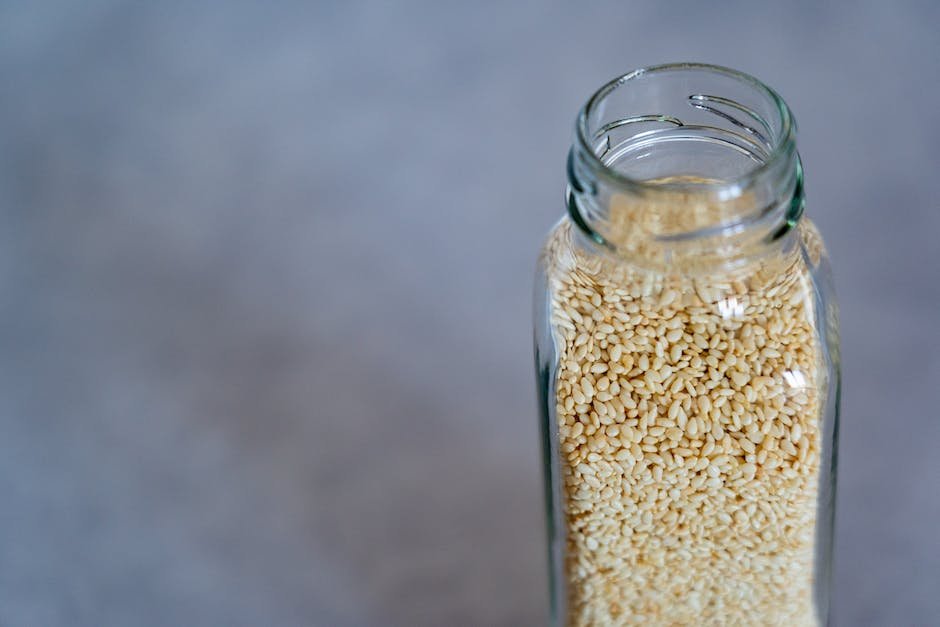Navigating the mysterious world of new motherhood is akin to embarking on a captivating voyage into uncharted waters. A universe brimming with countless queries and curiosities, one question sits with unparalleled significance atop the minds of breastfeeding mothers: how can I provide my little one with the very best nutrition? Fortunately, nature equips mothers with an extraordinary gift that surpasses all expectations – breastmilk. Within this nurturing elixir, lies a secret symphony of essential vitamins, minerals, and antibodies, all meticulously orchestrated to support an infant’s growth and development. Yet, as we explore the fascinating intricacies of breastmilk quality, a profound realization emerges: nutrition holds the key to unlocking its unparalleled potential. In this article, we delve into the captivating role nutrition plays in breastmilk quality, unearthing the fascinating interplay between a mother’s diet and the precious substance she provides her child.
Table of Contents
- The Power of Nutritional Intake for Optimal Breastmilk Quality
- Unveiling the Key Nutrients for Enhanced Breastmilk Composition
- Exploring the Impact of Maternal Diet on Breastmilk Nutritional Value
- Nourishing Foods to Include in Your Diet for Improved Breastmilk Quality
- Balanced Meal Planning: A Promising Approach to Boost Breastmilk Nutrients
- Q&A
- Concluding Remarks

The Power of Nutritional Intake for Optimal Breastmilk Quality
Lorem ipsum dolor sit amet, consectetur adipiscing elit.
Vestibulum ut lorem a ex pulvinar viverra. Praesent vitae consectetur justo. In hac habitasse platea dictumst. Sed vitae viverra dolor, ac facilisis metus. Integer a sem est. Vivamus nec augue sed magna auctor pellentesque. Phasellus aliquam nulla non lacus finibus auctor. Fusce iaculis orci neque, vel efficitur nibh mollis malesuada. Nullam in vulputate odio. Etiam massa tortor, convallis id rutrum et, lacinia posuere neque. Praesent volutpat massa sed ipsum dignissim, at commodo turpis consequat. Nunc nec tortor lorem.
Curabitur varius, enim at auctor commodo, nisl libero placerat mauris, vitae molestie magna dolor nec leo. Suspendisse eget elit id turpis eleifend facilisis quis id sem. Phasellus sed efficitur urna. Quisque at eros justo. Fusce rutrum efficitur mi, a laoreet orci condimentum id. Nunc eu vehicula urna, a tristique turpis. Etiam eu eros vestibulum, blandit purus quis, finibus enim. Ut id neque a nunc venenatis tempor. Suspendisse turpis leo, bibendum id tellus vitae, pharetra convallis ex. Maecenas vestibulum arcu id tempor venenatis. Nullam nec interdum enim, vitae porttitor justo. Donec ut lacus vestibulum, volutpat urna nec, hendrerit tortor.
The importance of a well-balanced diet:
A well-balanced diet is crucial for optimizing breastmilk quality. It provides essential nutrients and vitamins necessary for the growth and development of your baby. Here are a few reasons why maintaining a healthy nutritional intake is important:
- Enhances nutrient content: What you eat directly affects the nutrient content of your breastmilk. A diet rich in fruits, vegetables, whole grains, lean proteins, and healthy fats helps ensure a good balance of vitamins, minerals, proteins, and healthy fats in your breastmilk.
- Promotes adequate milk production: Proper nutrition supports optimal milk production. An insufficient intake of calories and nutrients may affect milk supply, making it important to consume an adequate amount of calories and essential nutrients.
- Supports your own health: A nutritious diet not only benefits your baby but also helps you maintain your own health. It can aid in postpartum recovery, boost energy levels, and support overall well-being.
Remember, always consult with a healthcare professional or a registered dietitian for personalized dietary recommendations tailored to your specific needs.

Unveiling the Key Nutrients for Enhanced Breastmilk Composition
As nature’s perfect food for infants, breastmilk provides the essential nutrients necessary for their growth and development. Understanding the key nutrients that contribute to enhanced breastmilk composition can empower mothers to make informed choices when it comes to their diet and nutrition.
1. Proteins: Breastmilk is rich in proteins that play a vital role in the growth and repair of cells. It contains whey and casein proteins, both of which are easily digestible for the baby’s delicate tummy. These proteins also provide immune-boosting properties that help protect little ones from infections.
2. Fats: The fat content in breastmilk is crucial for a child’s brain development. It supplies the necessary energy for growth and supports the absorption of fat-soluble vitamins. Omega-3 and omega-6 fatty acids found in breastmilk help nourish the brain and promote healthy vision.
3. Carbohydrates: Lactose, a carbohydrate in breastmilk, is the primary source of energy for babies. It aids in the absorption of calcium and assists in the growth of healthy gut bacteria. The complex carbohydrates found in breastmilk also promote digestive health and minimize the risk of gastrointestinal issues.
4. Vitamins and Minerals: Breastmilk is packed with essential vitamins and minerals necessary for the baby’s overall development. These include vitamin A, C, D, and E, along with minerals like calcium, iron, and zinc. They contribute to the baby’s immune system, bone development, and cognitive function.
Conclusion: By understanding the crucial role of key nutrients in breastmilk composition, mothers can make informed choices about their diet to ensure optimal nutrition for their little ones. Remember, a healthy and balanced diet is the foundation for producing top-quality breastmilk that supports your baby’s growth, health, and well-being.

Exploring the Impact of Maternal Diet on Breastmilk Nutritional Value
Breastmilk, the ultimate superfood for infants, is intricately linked to a mother’s diet. The nourishment it provides goes beyond just basic sustenance, as breastmilk is a complex and dynamic fluid that adjusts its composition to meet the specific needs of a growing baby. This fascinating ability of breastmilk is heavily influenced by the maternal diet, an area of exploration that continues to gain scientific interest.
Research has consistently shown that a well-balanced maternal diet can have a profound impact on the nutritional value of breastmilk. Certain nutrients, such as omega-3 fatty acids, vitamins, and minerals, are directly transferred from the mother’s diet to her breastmilk, enriching it with essential elements. For example, including sources of docosahexaenoic acid (DHA) like fish or algae in the diet can significantly increase the levels of this key fatty acid in breastmilk, promoting brain development in infants.
Moreover, the quality and quantity of breastmilk can be influenced by factors such as caloric intake, hydration levels, and specific food choices. Adequate caloric consumption is crucial, as insufficient energy intake can lead to a decrease in milk volume and nutrient content. Hydration is equally important, as dehydration can impact a mother’s milk supply. Additionally, some foods, like garlic or spices, may subtly flavor the breastmilk, providing infants with a diverse tasting experience while also introducing them to a range of flavors from an early age.
It is important to note that individual variations exist, and the impact of maternal diet on breastmilk can differ from person to person. Each mother’s body has its unique way of metabolizing and utilizing nutrients. Therefore, it is advisable for breastfeeding mothers to consult healthcare professionals or experts in nutrition to tailor a diet plan that ensures optimal nutrient intake, while also addressing any specific concerns or dietary restrictions they may have. By appreciating the intricate relationship between maternal diet and breastmilk, we can pave the way for healthier and nourished infants as they embark on their journey of growth and development.
Nourishing Foods to Include in Your Diet for Improved Breastmilk Quality
As a breastfeeding mom, you want to ensure that your little one receives the best nutrition possible. Including certain nourishing foods in your diet can help improve the quality of your breastmilk and provide your baby with essential nutrients for their growth and development. Here are some power-packed foods that you should consider adding to your daily meals:
- Oats: These humble grains are not only a great source of energy but also rich in iron and fiber. Eating a bowl of oatmeal for breakfast or snacking on oat cookies can help boost your breastmilk supply.
- Fatty Fish: Fish like salmon, sardines, and trout are packed with omega-3 fatty acids, which are crucial for your baby’s brain and eye development. Including these fish in your diet at least twice a week can benefit both you and your little one.
- Leafy Greens: Spinach, kale, and other leafy greens are not only rich in phytochemicals and antioxidants but also contain calcium and iron. Incorporating these nutrient powerhouses into your salads, smoothies, or stir-fries can give your breastmilk an added nutritional boost.
Remember, it’s important to maintain a balanced diet while breastfeeding. Including these nourishing foods, along with a variety of fruits, vegetables, lean proteins, and whole grains, can help ensure that your breastmilk provides all the essential nutrients your baby needs for a healthy start in life.
Balanced Meal Planning: A Promising Approach to Boost Breastmilk Nutrients
In the journey of motherhood, providing nutrient-rich breastmilk for your little one is of utmost importance. One effective way to enhance the nutritional value of your breastmilk is through balanced meal planning. By incorporating a variety of wholesome foods into your diet, you can ensure that your baby receives all the essential nutrients required for their growth and development.
To boost the nutritional content of your breastmilk, consider including the following components in your meal planning:
- Protein: Include lean meats, poultry, fish, eggs, legumes, and dairy products in your diet. These sources of protein provide essential amino acids crucial for your baby’s muscle and tissue development.
- Fruits and Vegetables: Aim for a colorful variety of fruits and veggies to obtain a wide range of vitamins, minerals, and antioxidants. These nutrients strengthen your baby’s immune system and promote overall health and vitality.
- Whole Grains: Incorporate whole grains like quinoa, brown rice, oats, and whole wheat bread. These fiber-rich foods provide sustained energy and help regulate digestion for both you and your baby.
- Healthy Fats: Include sources of healthy fats such as avocados, nuts, seeds, and olive oil in your meals. These fats support brain development in your little one and aid in the absorption of fat-soluble vitamins.
- Hydration: Don’t forget the importance of staying hydrated! It is essential for maintaining an adequate milk supply. Drink plenty of water, herbal teas, and other fluids throughout the day.
By following a balanced meal plan enriched with these essential nutrients, you can optimize the quality and quantity of your breastmilk. Remember to consult with a healthcare professional or lactation specialist for personalized meal recommendations that cater to your specific needs and preferences. Embracing this promising approach will empower you to nourish your little bundle of joy with the best possible start in life!
Q&A
1. Why is nutrition important for breastmilk quality?
Nutrition plays a crucial role in breastmilk quality because it directly affects the content of essential nutrients, antibodies, and growth factors necessary for the baby’s development and overall health.
2. How does a mother’s diet impact the quality of her breastmilk?
A mother’s diet directly influences the nutrient composition of her breastmilk. Consuming a well-balanced diet rich in vitamins, minerals, and omega-3 fatty acids can enhance breastmilk quality and provide optimal nutrition to the baby.
3. Are there specific foods that can improve breastmilk quality?
Including foods like leafy greens, whole grains, lean proteins, and fruits in the diet can improve breastmilk quality. Additionally, incorporating foods with lactogenic properties such as oats, fenugreek, and fennel can help enhance milk production and quality.
4. Can poor nutrition affect breastmilk supply and quality?
Yes, poor nutrition can negatively impact both breastmilk supply and quality. Inadequate calorie intake, nutrient deficiencies, and dehydration can lead to reduced milk production and lower levels of essential nutrients in breastmilk.
5. Is it necessary for breastfeeding mothers to take supplements?
Most breastfeeding mothers can meet their nutritional needs through a well-balanced diet. However, certain supplements like vitamin D, calcium, and omega-3 fatty acids may be recommended if the mother’s diet is lacking, or in specific cases where deficiencies are identified.
6. Does caffeine consumption affect breastmilk quality?
While caffeine does pass into breastmilk, moderate consumption (up to 2-3 cups of coffee per day) is generally considered safe. However, excessive caffeine intake can potentially affect a baby’s sleep patterns and irritability.
7. Can a mother’s stress level impact the quality of her breastmilk?
Yes, high levels of stress can affect breastmilk production and quality. Increased stress hormones may alter the hormonal balance required for milk synthesis, potentially leading to decreased milk supply and altered composition.
8. Are there any specific recommendations for breastfeeding mothers regarding alcohol consumption?
It is generally advised to avoid alcohol while breastfeeding. If a mother chooses to drink, waiting for a few hours per standard drink before nursing is recommended. Alcohol can pass into breastmilk and may affect the baby’s alertness and development.
9. Can breastfeeding mothers have a restricted diet due to allergies or intolerances?
Breastfeeding mothers with allergies or intolerances should consult with a healthcare professional or a registered dietitian to ensure they maintain a balanced diet while avoiding specific allergens or intolerant foods. Restricting the diet without guidance may lead to nutrient deficiencies.
10. How long can breastmilk be stored while maintaining its quality?
When stored in a refrigerator, fresh breastmilk can maintain its quality for up to 4 days. If stored in a freezer, it can be safely kept for up to 6 months. Following proper storage guidelines is essential to preserve the nutritional content and quality of breastmilk.
Concluding Remarks
As we conclude our journey into exploring the profound impact of nutrition on breastmilk quality, we stand in awe of the intricate dance between the mother’s body and nature’s nurture. This remarkable symphony of nutrients, bioactive compounds, and immune factors showcase the steadfast dedication of a mother’s body in providing the precious elixir of life.
In traversing the complex terrain of breastmilk composition, we have unearthed the secrets behind its remarkable ability to adapt and evolve, tailoring its nutrient profile to meet the ever-changing needs of a growing infant. From the initial colostrum, rich in immune-boosting antibodies, to the mature milk brimming with essential fatty acids, proteins, and vitamins, the nutritional value of breastmilk remains unparalleled.
Embracing the notion that the mother is the ultimate source of nourishment, we have witnessed the powerful influence of her diet and lifestyle on this sacred fluid. A harmonious connection between the mother’s nutrition and breastmilk quality showcases the profound importance of consuming a balanced, wholesome diet, rich in a myriad of essential nutrients.
In this exploration, we have encountered the superheroes of breastmilk nutrition, such as the omega-3 fatty acids, vitamin D, B vitamins, and zinc, each bearing an undeniable impact on an infant’s cognitive development, immune response, and overall health. As we delve deeper into the role of nutrition in breastmilk quality, we have come to realize that a mother’s diet extends far beyond her own well-being; it can shape the trajectory of her baby’s health, setting the stage for a vibrant future.
Motherhood, an extraordinary journey filled with nurturing and sacrifice, resides at the intersection of love, biology, and the pinnacle of nutrition. We marvel at the innate wisdom of a mother’s body, gracefully orchestrating the symphony of nutrients that fuels her little one’s growth, development, and resilience.
As we bid farewell to this exploration, we are reminded of the awe-inspiring power of breastmilk, a liquid gold imbued with the brilliance of nature’s design. May this knowledge empower mothers everywhere to make informed choices, nurturing their bodies, and consequently, their little ones with the gentle touch of nature’s most perfect concoction.
As an affiliate, my content may feature links to products I personally use and recommend. By taking action, like subscribing or making a purchase, you’ll be supporting my work and fueling my taco cravings at the same time. Win-win, right?
Want to read more? Check out our Affiliate Disclosure page.